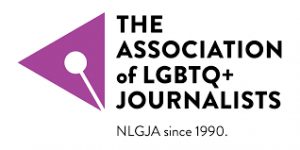
Guidelines issued for covering anti-trans executive orders
by Joe Siegel
NLGJA: The National Association of LGBTQ+ Journalists has issued a set of guidelines for reporting on the Trump administration’s anti-trans executive orders.
“Executive orders are directives issued by the president that set policy for federal Executive Branch agencies. They are powerful tools but do not supersede the Constitution or laws passed by Congress. In addition, they can be challenged in court or rescinded by future presidents,” the guidelines state.
“While challenges to many of Trump’s orders move through federal court, it falls to journalists to explain the orders’ effects and investigate the president’s broader purpose in signing them. Journalism is more compelling and audiences are better served when we cut through the jargon and tell stories that include the impact on people in the community.”
Some of NLGA’s recommendations include:
“Don’t take the wording of an order at face value. Political shorthand often uses demeaning language and reflects pseudoscientific claims. Trust experts over political talking points.
“Don’t let anecdotes carry false equivalency to scientific findings. Seek out evidence of the actual scope of the alleged problems the administration is purporting to solve. Ask: How have children thus far been harmed? Are there police reports of trans women attacking cisgender women in bathrooms? Is the assertion that trans athletes harm competitive sports supported by data? What percentage of people under age 18 have received gender-related medications or any sort of surgical intervention?
“Prioritize relevant voices. Seek out voices of the people who are most directly targeted, including trans people, the parents of trans children, and their immediate circles.
“Beware of politically loaded phrases. Terms such as [‘discriminatory equity ideology,’ ‘defending women’ and ‘protecting children’] are branding tools, not neutral descriptors, designed to oversimplify complex issues, evoke emotional reactions and distort open, critical discussion. Journalists should examine them skeptically. Using them without explanation is a disservice to the audience.
“Follow false statements with a fact check. It is our duty to prevent the spread of misinformation — which, remember, can come from opponents of anti-trans actions as well as supporters.
“Be specific when necessary. Trans communities are not a monolith, and not all trans communities are being targeted in the same way. Be aware of whether the subject is all transgender people or, specifically, trans women.”
As Trump’s executive orders make their way though the courts, a federal judge has blocked the enforcement of three of Trump’s executive orders that would have threatened to defund nonprofit organizations providing health care and services for LGBTQ people and those living with HIV, the Washington Blade reported last month.
Philadelphia Gay News also reported last month: “A federal judge in Washington, D.C. this week issued a preliminary injunction, temporarily blocking the federal Bureau of Prisons (BOP) from denying hormone therapy and other accommodations to transgender inmates. The injunction does not require the BOP to provide gender-affirming surgical care.”
A June 9 Bay Area Reporter story focused on funding for several LGBTQ and HIV organizations in San Francisco: “A federal court judge has granted a preliminary injunction temporarily blocking the Trump administration from defunding nine LGBTQ and HIV organizations. The groups are plaintiffs in an ongoing case against the president’s executive orders targeting diversity, equity, and inclusion policies; equity-related grants; and gender identity.”
To read NLGJA’s full statement on “Covering Anti-Trans Executive Orders,” go to https://www.nlgja.org/blog/2025/06/covering-anti-trans-executive-orders/.
IN THE NEWS
Volume 27
Issue 5







